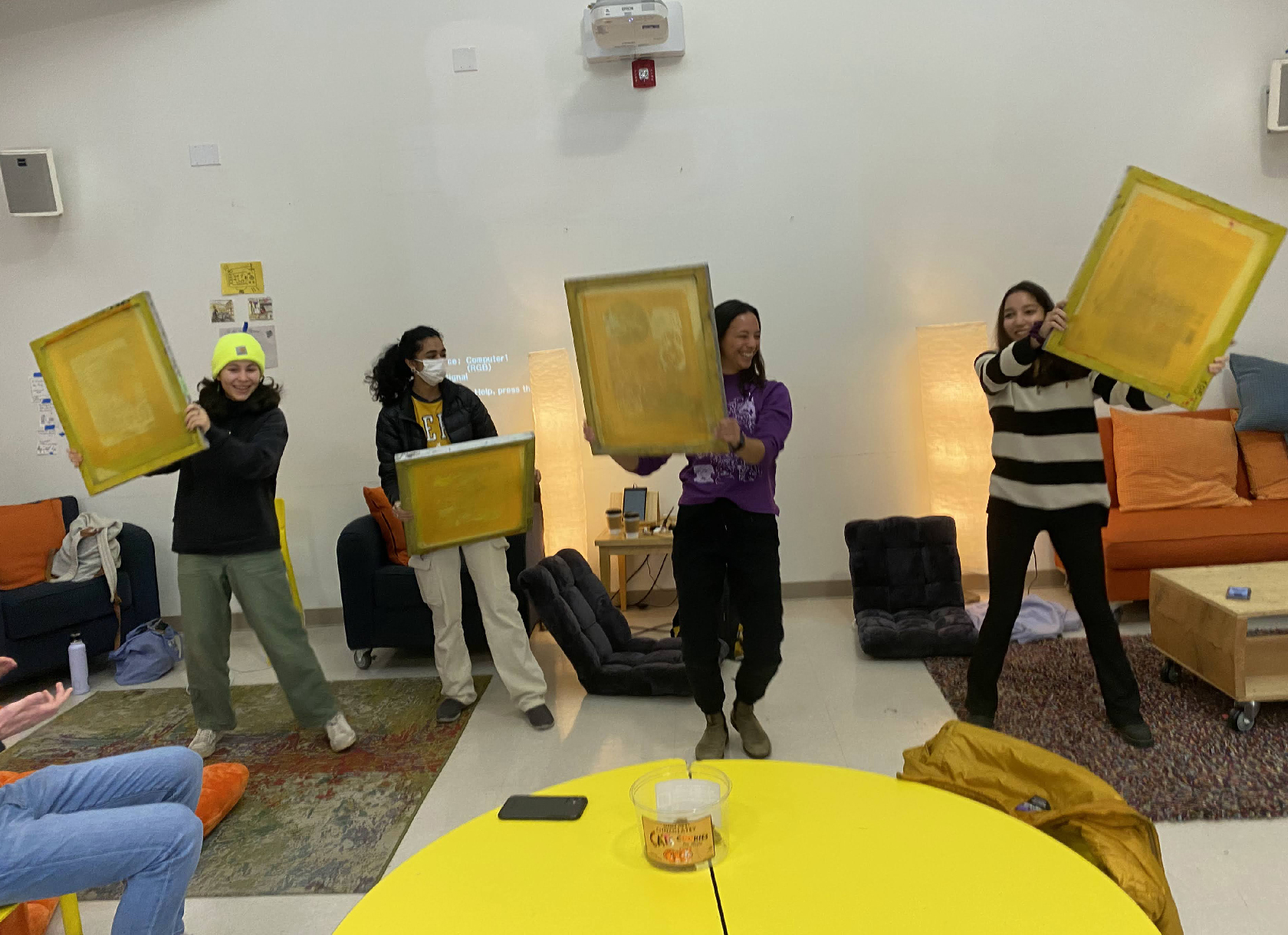By Mirabella Miller

One of the most unique things about the Scripps experience is that Scripps students can benefit from resources shared between the five undergraduate colleges of The Claremont Colleges consortium, such as an expansive array of classes, majors, dining halls, clubs, and workspaces. Few campus resources embody this cooperative dynamic better than the Rick and Susan Sontag Center for Collaborative Creativity, also known as the Hive. Located on Pomona’s campus, the Hive is a design center serving students, faculty, and staff from The Claremont Colleges. Students from all five undergraduate colleges work on the student team at the Hive, including four Scripps students.
“The Hive has had a very positive influence on my college experience,” says Louisa Calhoon ’24, who helps users with woodworking and other building projects as a student staffer at the Hive. “I spend lots of my time there. It’s a community of innovative and creative thinkers that I have enjoyed getting to know and being a part of. It highlights a part of going to The Claremont Colleges that I love, which is the cross-campus involvement and interactions.”
The Scripps students who make up of part of the Hive’s student staff were drawn to their roles for a variety of reasons, such as preexisting familiarity with design principles, passion for cultivating community through creativity, and knowledge of specific artistic techniques.
For Leona Das ’24, who has been working as a student staffer at the Hive since 2021, the Hive feels like a home away from home on campus. “The Hive’s development was guided by the philosophy of the Hasso Plattner Institute of Design at Stanford, also known as the d.school, Stanford’s design thinking institute,” she says. “My high school was also based on the d.school, so when I went to a Hive open house in the first few weeks of starting college, I immediately felt at home in the space.”
Das works to improve user experience at the Hive and hosts workshops. “Near the beginning of every semester, I lead a popular workshop called Sketch a Stranger, where students get to come in, meet somebody new, and practice their sketching skills,” she says. “This past semester, I also helped lead a more involved two-day workshop called Crafting your Personal Story, where we worked with students to develop their personal brand and helped them create a personal portfolio website to help them showcase their skills and projects.”
The Hive also offers courses in human-centered design (HCD), an interdisciplinary design approach that centers around creative problem solving. Students from all five colleges have the opportunity to self-design a major or minor in HCD through the Hive, a path that an increasing number of students have been choosing to pursue in recent years. Das, who is minoring in HCD herself, has been working to meet this demand by developing a set of curriculum resources for students who want to incorporate HCD into their degree.
“I have always been interested in pursuing a creative career, but the Hive has helped me find a purpose and path in design,” she says. “It has also given me the opportunity to pursue design as part of my degree, which can be difficult at most liberal arts colleges. After I graduate, I will be working as a product designer in the tech industry, and my human-centered design minor through the Hive has played a big part in my ability to get an internship and subsequent job in the field.”
While the many workshops, skillshares, and tools offered by the Hive are inspiring and supportive, the community is what makes the Hive a truly special campus resource. “My favorite thing about working at the Hive is spending time with the people I have met there,” says Jane Lovett ’25, who works as a proctor in the Print Lab helping users with screen printing projects and hosting screen printing and block printing skillshares. “Everyone who works at the Hive brings something different to the space. I’ve been lucky to meet and create connections with these people in a space that encourages creativity in collaboration.”
Furthermore, these connections have a lasting impact. “The Hive introduced me to human-centered design, which I want to pursue postgrad,” Calhoon says. “But most importantly, it has introduced me to people who I know I will be connected to long after my time at the Hive.”

